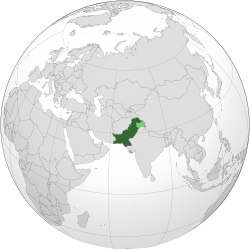
The rally underscored Shah’s commitment to maintaining security in Jammu and Kashmir, a region historically plagued by violence and insurgency. His remarks signal a clear policy direction, reinforcing the government’s position that talks with Pakistan will not occur until terrorism is eradicated from the area. This statement resonates with ongoing tensions between India and Pakistan, particularly regarding cross-border terrorism.
The backdrop to Shah's declaration includes a significant uptick in military operations against terrorist groups in the region. The Indian Armed Forces have intensified their efforts in counter-terrorism, aiming to dismantle terror networks and prevent cross-border infiltration. The government’s approach combines military action with development initiatives aimed at winning the hearts and minds of local populations, a strategy that seeks to undermine support for insurgent groups.
This firm rhetoric aligns with the BJP’s broader electoral strategy, aiming to consolidate its support base in Jammu and Kashmir. The BJP has historically positioned itself as a hardline party on national security issues, appealing to voters' sentiments around safety and stability. Shah’s emphasis on youth engagement aims to foster a sense of empowerment among young people in the region, potentially drawing them away from radical elements.
Political analysts note that Shah’s remarks may also serve to counter any perception of leniency towards those involved in anti-national activities. By promising no leniency towards stone pelters and terrorists, the Home Minister aims to assure the electorate of the government’s tough stance on maintaining law and order.
The BJP’s narrative is not without challenges. Critics argue that heavy-handed tactics could exacerbate local grievances and alienate communities. Reports indicate that while the government has made strides in infrastructure development, persistent issues such as unemployment and lack of educational opportunities continue to plague the youth of Jammu and Kashmir. The effectiveness of the government’s strategy will largely depend on its ability to balance security measures with genuine development efforts that address the root causes of unrest.
In the past, interactions between local leaders and the central government have been fraught with tension. Local political parties often accuse the BJP of undermining regional autonomy and ignoring the aspirations of the people. Shah’s comments may further polarize the political landscape, particularly if the BJP is perceived as dismissive of local concerns.
Shah’s visit and subsequent declarations come at a time when Jammu and Kashmir is witnessing a shift in its political dynamics. Following the abrogation of Article 370 in 2019, which revoked the region's special status, there has been a notable increase in political activity. The BJP has aimed to solidify its presence in the region, competing against established parties such as the National Conference and the People’s Democratic Party.
Security concerns in Jammu and Kashmir remain paramount. The government has invested heavily in intelligence and surveillance to preempt terrorist activities. Reports indicate that the army and paramilitary forces have heightened their presence in sensitive areas, conducting regular operations to thwart potential threats. This proactive stance aims to instill a sense of safety among residents and deter potential recruitment into militant ranks.
The youth demographic in Jammu and Kashmir represents a critical factor in the region’s future stability. As the government pursues a dual approach of military and developmental strategies, its ability to engage meaningfully with young people will be crucial. Initiatives that promote education, job creation, and entrepreneurship could play a significant role in steering the youth away from violence.
The international context also plays a pivotal role in shaping the narrative around terrorism in Jammu and Kashmir. The government has consistently highlighted Pakistan’s role in supporting terrorist groups, framing its military operations as part of a broader fight against cross-border terrorism. Diplomatic efforts to rally international support against terrorism have been ongoing, with the government seeking to position itself as a key player in the global fight against extremism.
Local political dynamics complicate this narrative. Various factions within Jammu and Kashmir advocate for different approaches to governance and security, often reflecting the diverse aspirations of its populace. The central government’s policies must navigate these complexities while maintaining a unified stance against terrorism.
